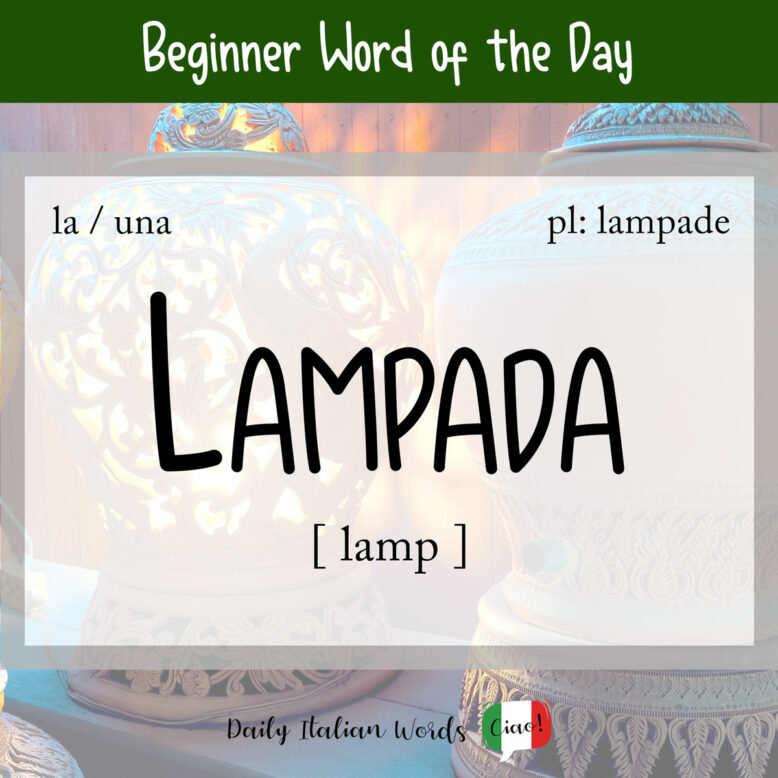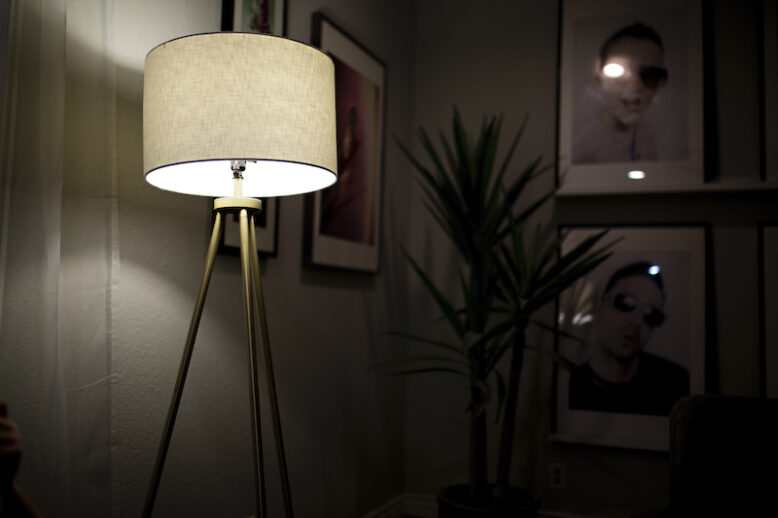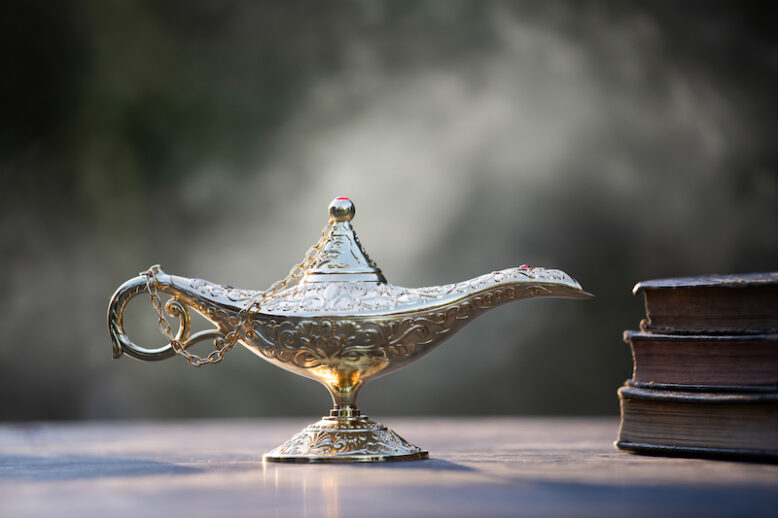A word that should be very easy for English speakers to remember is lampada, which means lamp in Italian. Its origin can be traced back to the Latin lampas -ădis, which in turn comes from the Greek lampás -ádos, a derivative of lámpō meaning ‘to shine’.

Lampada is a feminine noun, so it takes the following definite and indefinite articles:
la lampada
the lamp
una lampada
a lamp
le lampade
the lamps
delle lampade
(some) lamps
As in English, lampada can refer to the artificial source of light itself, or the device that uses the source. Some of the most well-known types of artificial light are:
- lampada fluorescente = fluorescent lamp
- lampada a incandescenza = incandescent lamp
- lampada a raggi ultravioletti / infrarossi = ultraviolet / infrared lamp
- lampada al quarzo = quartz lamp
- lampada alogena = halogen lamp
Puoi accendere quella lampada per favore? Non vedo un tubo!
Can you turn on that lamp? I can’t see a thing!
Note that, colloquially, Italians use the word luce (light) to refer to the house lights, or a particular lamp, just like in English. The example phrase above would have worked had it been worded: Puoi accendere quella luce per favore? (Can you turn on that light please?).

You can attach the preposition da + “a specific indoor location” to the end of the word to indicate where the lamp is usually found within the home. For example, una lampada da tavolo is a table lamp, una lampada da parete / da muro is a wall lamp, and una lampada da terra is a floor / standing lamp. A lampada da comodino (bedside lamp) is also commonly called an abat-jour, the latter coming from the French.
The diminutive term lampadina literally means small lamp, but it used to denote a light bulb.
Si è bruciata la lampadina. Devo sostituirla.
The light bulb burned out. I need to replace it.
In the traditional folk tale Aladdin, the eponymous character encounters a genie after rubbing a magical lampada ad olio (oil lamp). Genie of the lamp translates as genio della lampada in Italian.
The expression avere la lampada di Aladino or avere il Genio della lampada (lit. to have Aladdin’s lamp / to have the genie of the lamp) means to be very lucky.

Finally, the expression farsi una lampada (lit. to do oneself a lamp) refers to the act of going to the tanning salon.
Ti sei fatta una lampada? Ti vedo molto abbronzata!
Have you been to the tanning salon? You look very tanned!
Heather Broster is a graduate with honours in linguistics from the University of Western Ontario. She is an aspiring polyglot, proficient in English and Italian, as well as Japanese, Welsh, and French to varying degrees of fluency. Originally from Toronto, Heather has resided in various countries, notably Italy for a period of six years. Her primary focus lies in the fields of language acquisition, education, and bilingual instruction.


